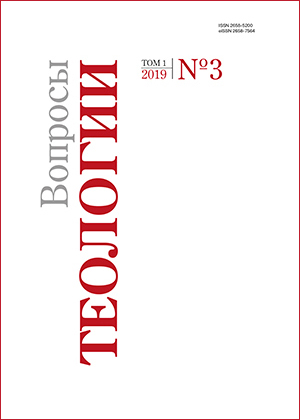Theology and interreligious dialogue: from controversy to cooperation
DOI:
https://doi.org/10.21638/spbu28.2019.302Abstract
The article considers the original classification of four types of interreligious dialogue as follows: 1. Intention (the motivation to come into contact with a representative of another religion); 2. Goal (tasks and goals pursued by the participants in the dialogue); 3. Principles (the starting points, which determine the interaction); 4. Form (participants in the dialogue, meeting form). Among the most important criterion is intention, which identifies the types of polemical, peacemaking, cognitive and partnership dialogue. These types of dialogue are aligned respectively around the following questions: Who is right?, How can we live together peacefully?, Who are you? and What can we do to improve the world?. The place of theology in each type of interreligious dialogue is examined. In the context of religious pluralism, the spread of new religious movements, as well as a tendency towards convergence of religions, theology has not lost its importance as a tool to protect one’s faith and provided a reasoned justification of its benefits. In the framework of cognitive dialogue, the significance of theology is analyzed in such areas as theology of religions, the formation of attitudes towards followers of other religions, comparative theology, and spiritual dialogue. One of the main strategies for peacemaking dialogue is to identify the similarities of religious worldviews in dogma and ethics.
Three areas of cooperation of religions in partnership dialogue are distinguished: “individual,” “society,” and “environment.” The role of theology is to identify possible paths and comprehend the conceptual grounds for interreligious cooperation. The author comes to the conclusion that the place of theology in the field of interreligious relations is wide and diverse. Consideration of this complex problem requires specification, that is clarification of the role of theology in various types of interreligious dialogue — polemical, peacemaking, cognitive and partnership, as well as their subspecies.
Keywords:
interreligious dialogue, interreligious relations, types, religion, religious factor, theology, exclusiveness, polemics, peacemaking, cooperation, theology of religions, inclusion, comparative theology
Downloads
References
Downloads
Published
Issue
Section
License
Articles of "Issues of Theology" are open access distributed under the terms of the License Agreement with Saint Petersburg State University, which permits to the authors unrestricted distribution and self-archiving free of charge.




